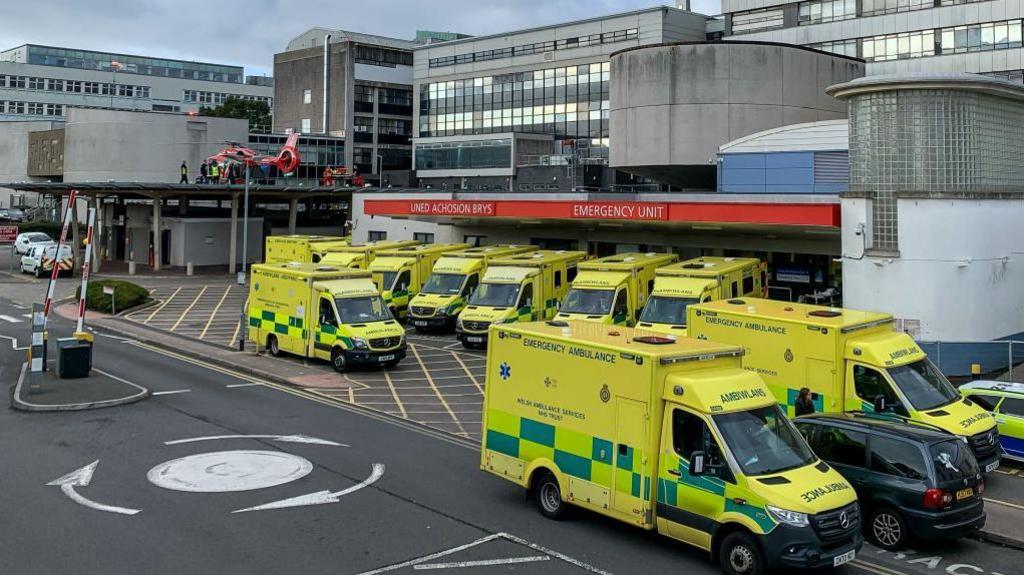Ambulance trial sees 814 calls in most urgent category

The purple category is solely for people in cardiac or respiratory arrest
- Published
A new ambulance service trial which saw the creation of a new category for the most urgent cases in Wales saw 814 calls within the first month.
This purple category is solely for people in cardiac or respiratory arrest and made up 2.3% of all calls to the Wales Ambulance Service.
For those where resuscitation was attempted, 21.4% were successfully resuscitated by they time they arrived at hospital.
The out of hospital survival rate in Wales is currently less than 5%, half that of England and Scotland.
Ambulance targets overhaul to 'save more lives'
- Published11 March
New 'orange' ambulance category for stroke victims
- Published17 July
Volunteer 999 responders part of ambulance service overhaul
- Published30 June
There were 4,449 red calls, when a person is at high risk of cardiac or respiratory arrest, including choking, allergic reaction or severe blood loss. That was about 12.6% of all calls.
Elsewhere, Wednesday's figures showed a drop of 2,100 cases of people waiting for treatment in Wales in June, totalling 794,500.
In the same month, the numbers waiting more than two years fell to about 7,400, which is the lowest it has been in four years - though provisional data for July suggest both figures have increased.
First Minister Eluned Morgan previously said the two-year waits would be "around 8,000" by the spring, though in both April and May those figures bounced back up.
This is the first time they have fallen below that figure.
Health Secretary Jeremy Miles said: "We expect to see some fluctuations in the number of long waits from month to month – that reflects in part the variation in the numbers of people who came onto the list two years ago, but I am confident there will be significant further reductions by the end of the next quarter in September, keeping us on track with our plan to bring down the longest waits.
"I know health boards are working very hard to bring waits down and I can see the impact of this in the numbers of additional treatments being carried out. We need to make sure this continues over the months ahead."
But James Evans of the Welsh Conservatives said the statistics were "far from good enough" and progress had been "unacceptably slow".
Performance against Wales' 62-day cancer target - patients beginning treatment within 62 days of cancer being first suspected - worsened slightly and stood at 60.2% in June.
The fresh data on purple category calls also breaks down the average time taken to start CPR instruction by 999 call handlers to the person who made the call.
It shows CPR was started within about four minutes, and a defibrillator was in use within five and a half minutes.
The target is for an ambulance response with six to eight minutes and this first set of figures shows the average response was 7.35 minutes.
NICE (National Institute for Health and Care Excellence) said immediate CPR could double or quadruple survival from out of hospital cardiac arrests.
Defibrillation within 3 to 5 minutes of collapse can produce survival rates of 50 to 70%.
The figures also showed the continuing pressure on A&E departments with the highest number on record attending during July.
However there was a drop in the numbers of patients medically well enough to be discharged, but who remain in hospital because of delays in their transfer. At 1,300 it is the lowest in two years.